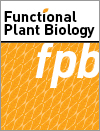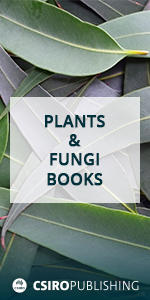Both sodium chloride and sodium salt treatments inhibited the growth of canola seedlings. Sodium chloride imposed the most damage, and chloride salts the least. Under treatment with sodium chloride and sodium salt, the canola variety Huayouza 62 grew best, by maintaining lower sodium content in the root system, higher magnesium content, and a greater ratio of magnesium to sodium to improve photosynthetic capacity. Chloride salts had a positive role in inducing oxidative stress and responsive antioxidant defence in canola seedlings.

Functional Plant Biology
Volume 51 Number 8 2024
WOX is a family of genes that help regulate how plants develop and also respond to stress. In this study, 12 WOX genes were identified in grapes and analysed by bioinformatic methods. Coanalysis of different expression patterns in grapes showed that two of these genes respond to specific viruses and effectively block virus replication and infestation. Another gene was the most sensitive to salt stress. This study provides preliminary evidence that these three genes are key to resistance to salt and to viruses in grape, providing vital candidate genes for grapevine breeding
The CONSTANS-LIKE (COL) gene is key to plant photoperiod signalling. Tetrastigma hemsleyanum is a medicinal plant that grows only in China. Its root tuber extracts have good effect on the clinical treatment of tumours. The formation and development of its tuberous roots are related to photoperiod. In this study, the expression profiles of COL genes in T. hemsleyanum leaf under different photoperiod conditions was analysed and used to analyse whether COL genes have a role in T. hemsleyanum perception of photoperiod signalling.
Abscisic acid (ABA) is a key player in how plants adapt to their environment, from growth to coping with stress. In this study, we identified the PYL genes in potatoes (Solanum tuberosum), crucial for ABA signalling pathways, yet poorly understood in potato. We uncover 17 PYL genes in potatoes, revealing their diverse roles in stress response and growth regulation. These findings shed light on potential role of PYL genes in mitigating the multiple stresses.
This article belongs to the Collection Functional Genomics for Developing Climate Resilient Crops.





